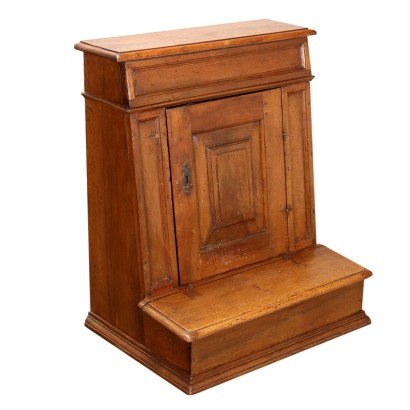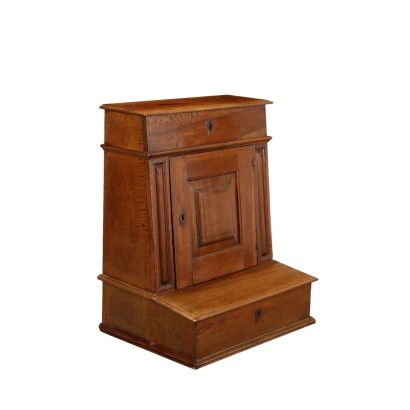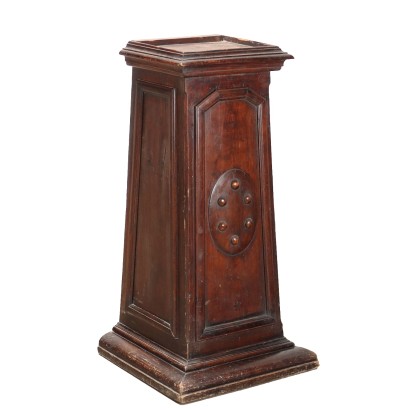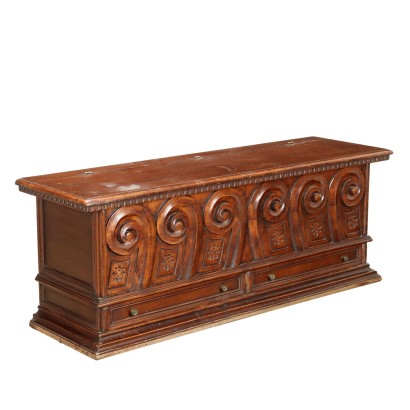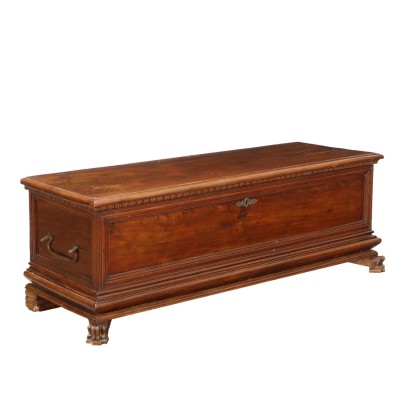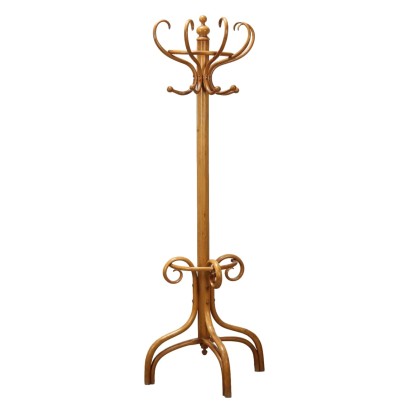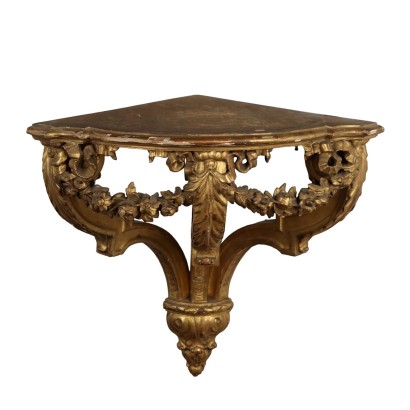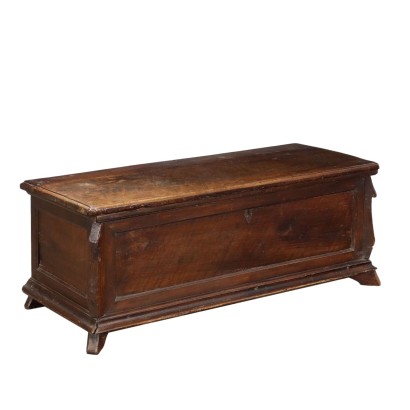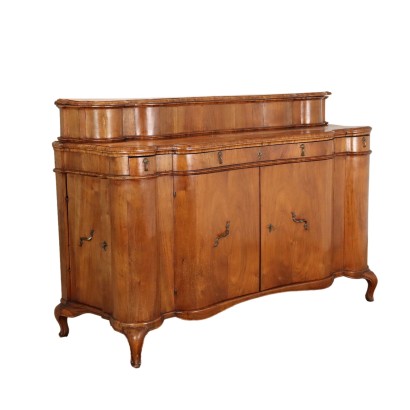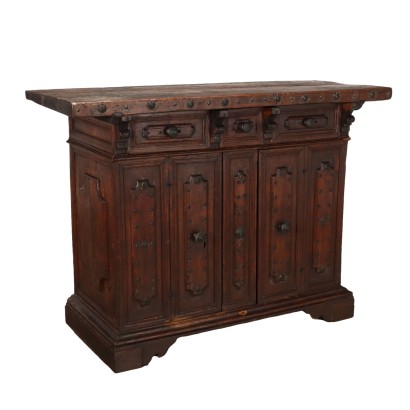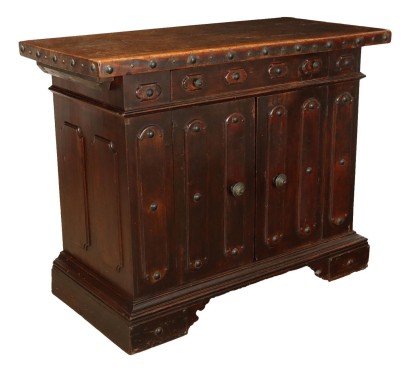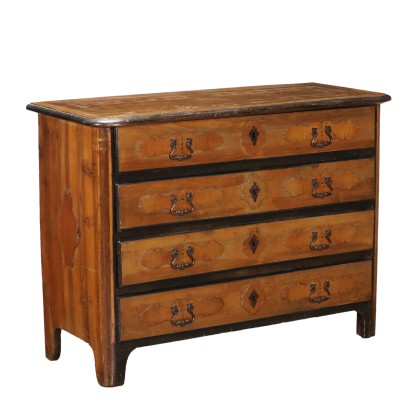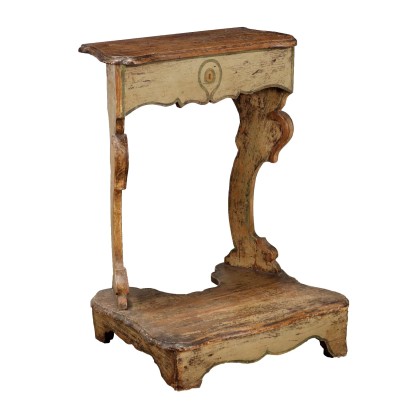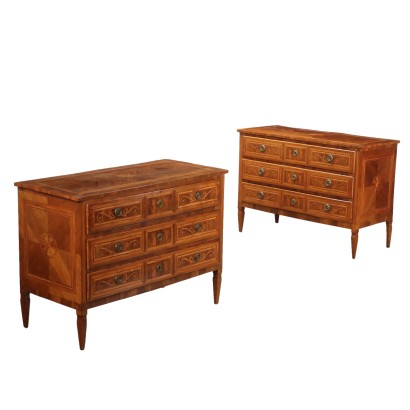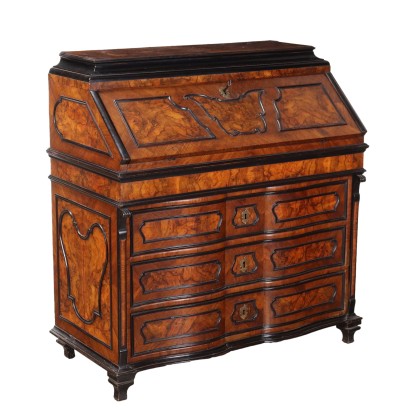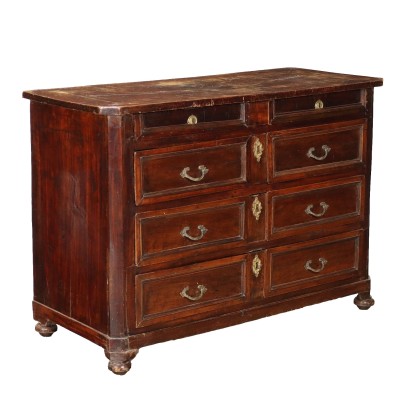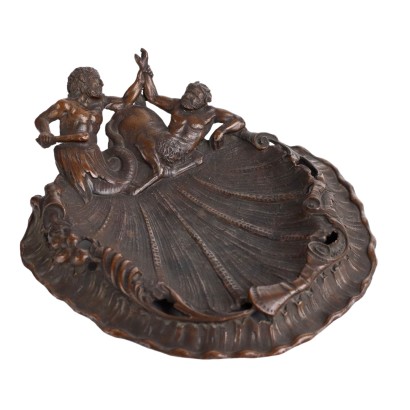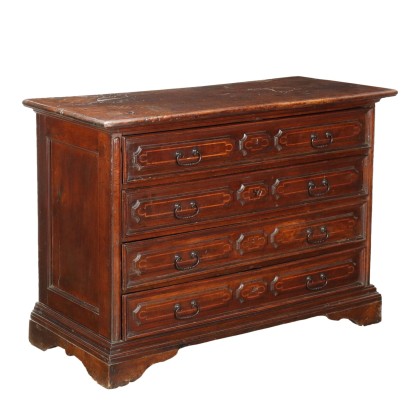Antique Praying Desk Walnut Poplar Italy XVIII Century - Italy, Early XVIII Century
Features
Italy, Early XVIII Century
Age: 18th Century / 1701 - 1800
Origin: Italy
Description
Praying desk in walnut and poplar, has a central door and a drawer under the top, a liftable platform with a compartment underneath, the hinges of the platform have been replaced. Italy, early 18th century
Product Condition:
Product that due to age and wear requires restoration and polishing. We try to present the real state of the furniture as completely as possible with the photos. If some details are not clear from the photos, what is reported in the description is valid.
Dimensions (cm):
Height: 94,5
Width: 76
Depth: 55
Additional Information
Age: 18th Century / 1701 - 1800
18th Century / 1701 - 1800Main essence:
Walnut
Walnut wood comes from the plant whose botanical name is juglans regia , probably originally from the East but very common in Europe. Light or dark brown in color, it is a hard wood with a beautiful grain, widely used in antique furniture. It was the main essence in Italy throughout the Renaissance and later had a good diffusion in Europe, especially in England, until the advent of mahogany. It was used for solid wood furniture and sometimes carvings and inlays, its only big limitation is that it suffers a lot from woodworm. In France it was widely used more than anything else in the provinces. In the second half of the eighteenth century its use decreased significantly because mahogany and other exotic woods were preferred.Poplar
Essence considered "poor", it is a white wood, with yellowish or greyish shades, light and tender, which is easily damaged. It is used for rustic furniture or in the construction of furniture. The most valuable use it has had in the history of furniture is in Germany, in the 19th century, for veneers and inlays in the Biedermeier period.Other customers have searched:
Altri mobili antichi, toilette antica, inginocchiatoio antico, baule antico, inginocchiatoio, mobili antiquariato, mobili antichi, bauli, cassapanca..
Se ti interessano i mobili d'antiquariato Scopri qui tutte le presentazioni dei prodotti d'antiquariato più belli, eleganti e preziosi su FineArt by Di Mano In Mano
Leggi di più
Sull'antiquariato in generale dai un'occhiata anche a:
Antiquariato: una sezione per raccontare i mobili antichi che sono arrivati fino ai giorni nostri.
Classic Monday: da un pezzo dei nostri magazzini alla storia dell'antiquariato
L'antiquariato dalla A alla Z: il Dizionario dell'Antiquariato
Il dizionario dell'antiquariato - Lastronatura
Il dizionario dell'antiquariato - Mascherone
Il dizionario dell'antiquariato - Natura morta
Il dizionario dell'antiquariato - Opificio
Il dizionario dell'antiquariato - Pastiglia
Il dizionario dell'antiquariato - Savonarola
Il dizionario dell'antiquariato - Rosone
Intaglio barocco con motivo a ricciolo
Infine, dai un'occhiata alle nostre rubriche di divulgazione sulla storia delle arti decorative e d'arredo:
Epoche
Lavorazioni e tecniche
Mostre ed Eventi
Protagonisti
Leggi di più
Sull'antiquariato in generale dai un'occhiata anche a:Antiquariato: una sezione per raccontare i mobili antichi che sono arrivati fino ai giorni nostri.
Classic Monday: da un pezzo dei nostri magazzini alla storia dell'antiquariato
L'antiquariato dalla A alla Z: il Dizionario dell'Antiquariato
Il dizionario dell'antiquariato - Lastronatura
Il dizionario dell'antiquariato - Mascherone
Il dizionario dell'antiquariato - Natura morta
Il dizionario dell'antiquariato - Opificio
Il dizionario dell'antiquariato - Pastiglia
Il dizionario dell'antiquariato - Savonarola
Il dizionario dell'antiquariato - Rosone
Intaglio barocco con motivo a ricciolo
Infine, dai un'occhiata alle nostre rubriche di divulgazione sulla storia delle arti decorative e d'arredo:
Epoche
Lavorazioni e tecniche
Mostre ed Eventi
Protagonisti
Product availability
The product can be seen at Cambiago
Immediate availability
Ready for delivery within 2 working days from ordering the product.



